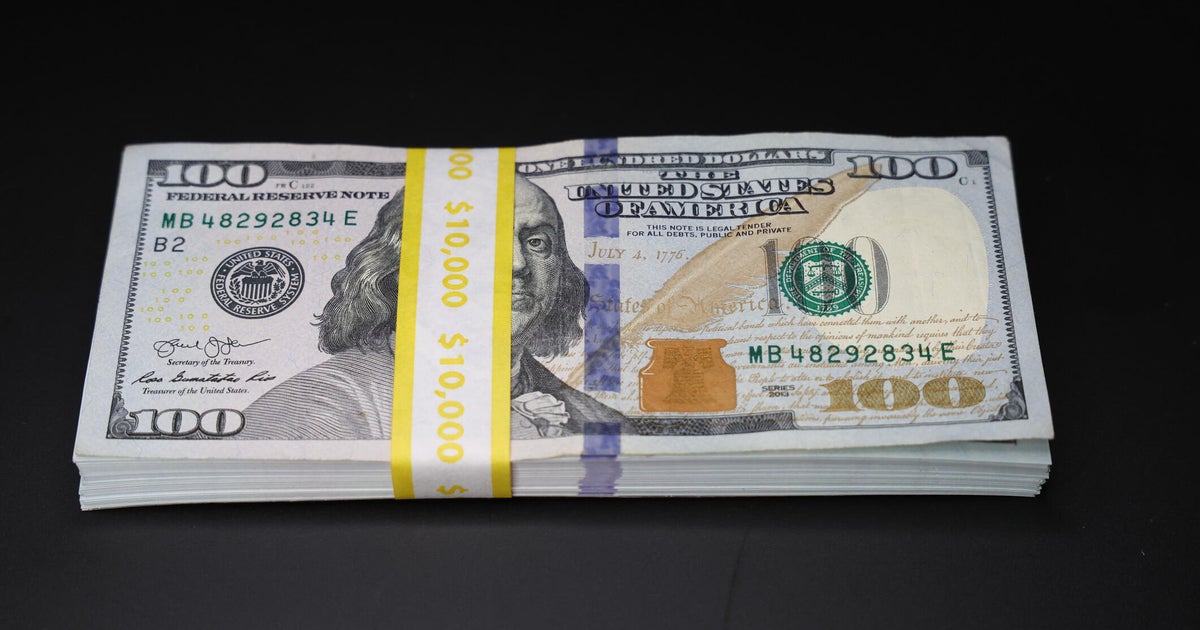Does CD laddering still make sense or should you lock in a long-term rate now?
CD laddering is a popular savings strategy in which savers spread their CD investments across CDs with different maturities. For example, instead of opening a $5,000 5-year CD, you may decide to open five different CDs, like a 1-, 2-, 3-, 4- and 5-year CD, each with a $1,000 deposit.
As each account matures over time, you have options: You can either use the money for something you need or open a new 5-year CD and continue earning. What's smart about this strategy is that it ensures you have liquidity if you need it but also gives you the ability to reinvest if you don't and earn big returns on your cash.
But while you can earn big returns on CDs right now due to today's high-rate environment, that is expected to change. Experts expect the Federal Reserve to lower the federal funds rate later this year. And since that rate target is the primary benchmark for consumer interest rates, those reductions could cause CD returns to fall.
That, in turn, begs the question of whether CD laddering still makes sense. Or, should you open a long-term CD to lock in a high rate over the longer term instead?
Compare today's leading CD rates to take advantage of the high-rate environment now.
Does CD laddering still make sense or should you lock in a long-term rate now?
"CD laddering has been a time-tested strategy for managing interest rate risk while maximizing returns in a conservative investment portfolio," says Justin Stivers, financial advisor and founding attorney at Stivers Law. "A portion of funds become available for reinvestment at regular intervals, potentially capturing higher rates in a rising interest rate environment."
But with the Federal Reserve expected to reduce its federal funds rate later this year, is a CD ladder the right strategy? Here's when it is — and when it may not be.
When CD laddering still makes sense
"Right now, there is a bit of Russian Roulette with this strategy because the underlying question is, 'When will the Fed start easing?,'" says Matt Willer, managing director of capital markets and partner at Phoenix Capital Group.
A few weeks ago, it appeared that there may not have been enough time before the potential Fed rate cuts for CD laddering to make sense, according to Willer.
"But some mixed signals from the inflation front may give Powell and the Fed pause to punt the rate decrease toward the end of 2024 as they digest more data," Willer says.
In turn, CD laddering may still be a smart option.
"But come Q2, I'd start to think about locking in something a little more lengthy before watching rates erode," Willer says.
And, this strategy can also help you maintain liquidity, Stivers says. Since the process involves opening CDs with differing maturities, liquidity events will happen at regular intervals, whether that's semi-annually, annually or any other interval you set up.
Ultimately, the CD laddering "strategy suits conservative investors seeking steady income streams and protection against market volatility," Stivers says.
Use a CD to earn more interest on your money now.
When it's better to lock in a long-term rate
While CD laddering can still make sense, it may not be the best option in all cases.
For example, if you don't need the liquidity generated through CD laddering, locking in a long-term rate could make more sense. While recent inflation data suggests that the Federal Reserve could wait a while to make rate cuts, experts still expect interest rates to start falling at some point in 2024.
Because CDs allow you to lock in your annual percentage yield (APY) for the entire account term, they can generate reliable returns for years to come, depending on the term length you choose.
"Locking in a long-term CD rate may appeal to investors seeking stability and higher yields in a low-rate environment," Stivers says.
The bottom line
"Ultimately, the decision between CD laddering and locking in a long-term rate depends on individual financial goals, risk tolerance and market outlook," says Stivers. If you believe interest rates will stay elevated for the near future or need regular income, CD laddering may still make sense. If you're concerned about interest rates falling in the future and don't expect to need access to your funds, locking in today's high rates for the long-term may make more sense.




